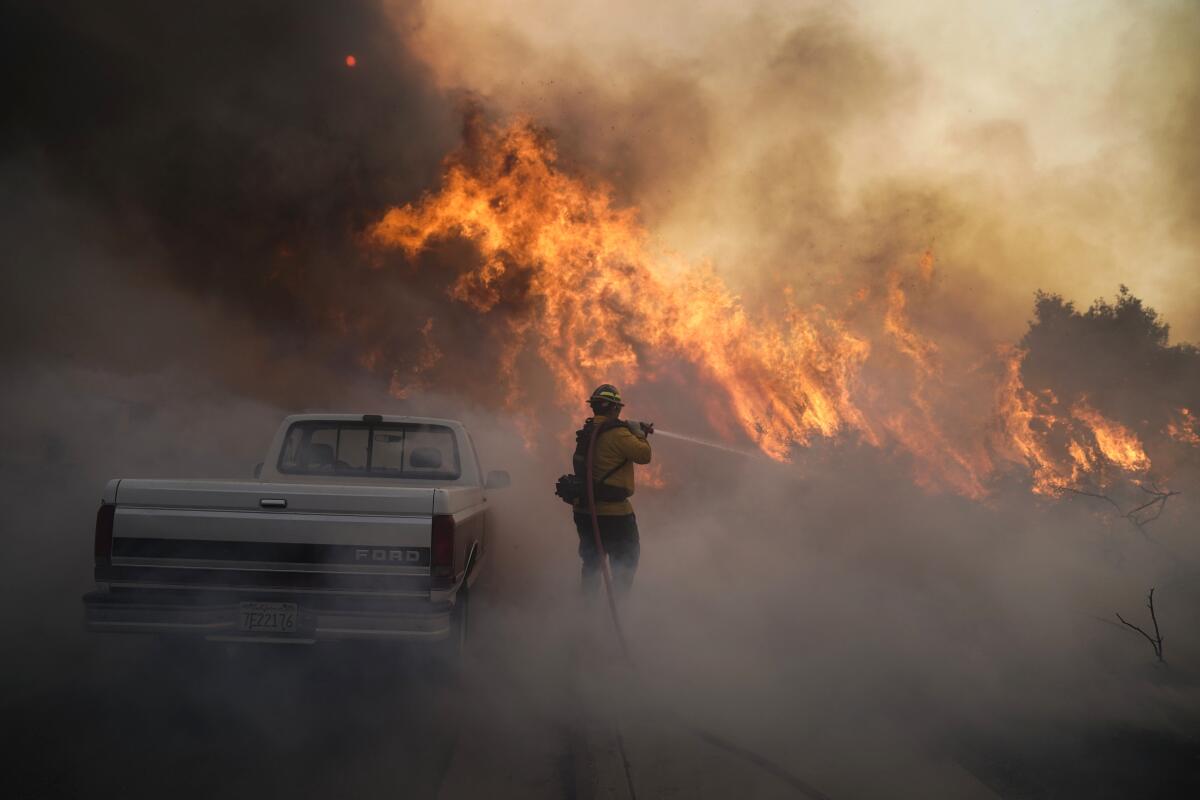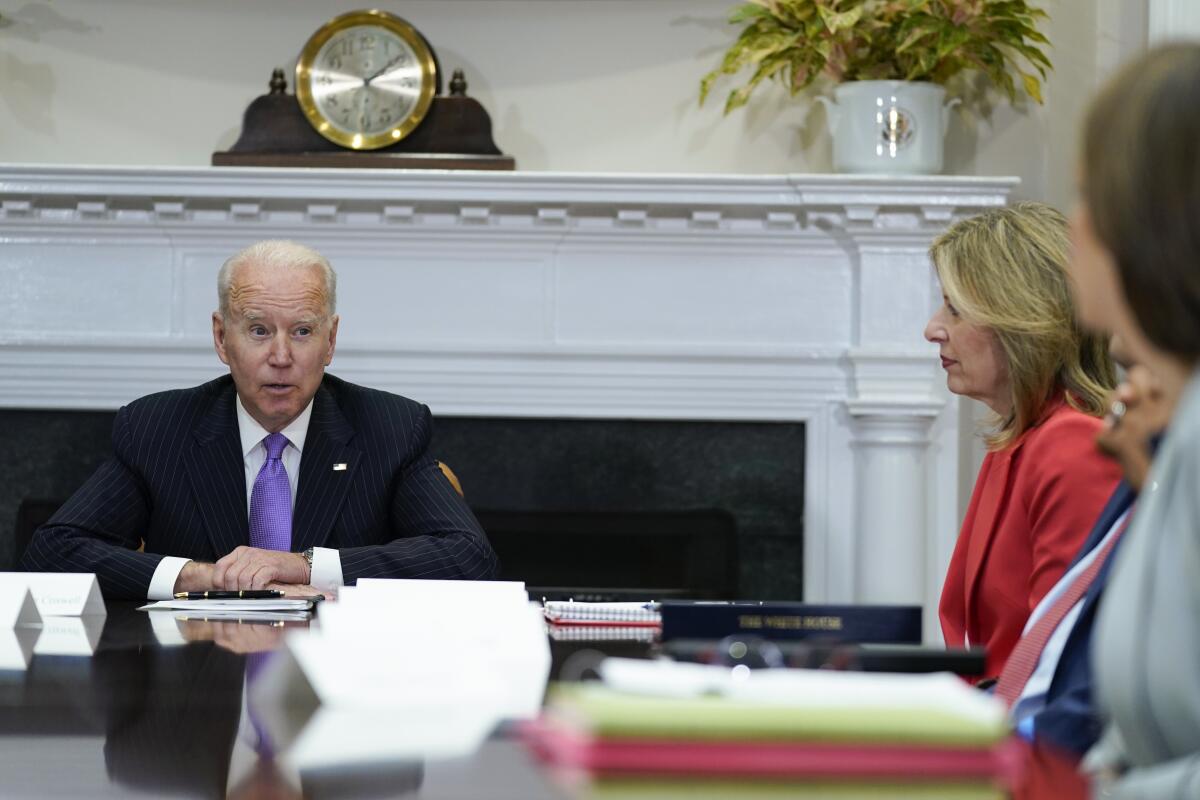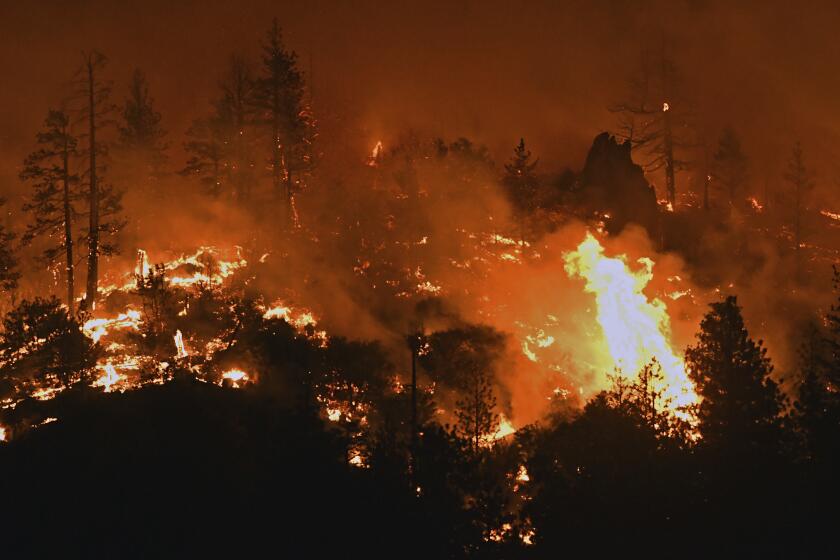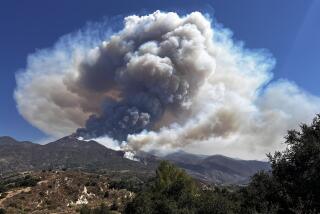As the West begins to burn, Biden to talk wildfires with Newsom and other governors

WASHINGTON — President Biden will meet Wednesday with Cabinet officials and leaders from Western states, including California Gov. Gavin Newsom, as he faces what could be another devastating year of wildfires with drought conditions worsening and searing temperatures spreading.
The situation has alarmed experts and public officials, who warn that this year’s fire season could outpace last year’s, which was the worst on record. Blazes have already ignited around California, where dry vegetation has left large swaths of the state primed to explode into flames, even as the federal government struggles to hire firefighters.
“We’re in as high risk of a starting condition as we could ever expect,” said Noah Diffenbaugh, a Stanford University professor who studies climate change and wildfires.
Several major fires have been sparked in the last several days, and officials warn it is the harbinger of another bad fire season.
The California National Guard deployed a month earlier than last year, sending aircraft to drop flame retardant on the Lava fire near Mt. Shasta. It’s the largest active fire in the state, burning more than 13,000 acres since sparking Thursday, and Newsom announced Tuesday that the federal government was going to help cover some of the costs.
Western states are eager for Washington to step up its commitment after President Trump repeatedly blamed them — particularly California, which he said failed to “clean your forests” of combustible vegetation — for failing to prevent and stop wildfires.
The threat comes amid staffing shortages at the U.S. Forest Service and the Bureau of Land Management, problems exacerbated by low pay, competition from state and local fire departments and exhaustion from last year’s fire season.
More than a month after seasonal hiring would typically have ended, the federal government is still trying to fill vacant positions on hot shot crews, the most elite and experienced firefighting teams. Although these crews are venerated for leading the attack against the most difficult fires, some have had so many veteran firefighters quit that they’ve been downgraded to a lower-ranking status.
Nationally, fire management teams are having to compete with each other for crews and equipment much earlier in the season than in years past. On June 22, the National Interagency Fire Center, which coordinates fire response from Boise, Idaho, raised the national preparedness to level 4 on a 1 to 5 scale, saying it was the second earliest it had reached that point.

The shortages have filled crews on the fire lines with anxiety and led to louder calls for change.
“We’re at a point where we’re simply going to be overwhelmed year after year going forward given the current systems we have in place,” said Jim Whittington, an expert in wildland fire response. “We really need to look at the way we staff and work wildland fires, the way we fund them, and the way we take care of our people. We need a full reset.”
Along with calls for higher pay — a first-year Forest Service firefighter currently earns a base wage of $13.45 an hour — there are those like Whittington who believe firefighting needs to become a full-time job. Currently, the federal government fills its ranks each summer with thousands of seasonal firefighters who don’t get health insurance and are laid off after about six months. Some of these workers struggle at the end of the season as months of stress take their toll.
“We also need better mental health support for wildland firefighters,” Whittington said. “Too many face a crisis when they are laid off.”
Biden said last week that he was surprised to learn that some federal firefighters earn so little.
“That’s a ridiculously low salary,” he said, banging his hand on a table in the Roosevelt Room in the White House during a meeting with emergency officials.
Kelly Martin, the president of Grassroots Wildland Firefighters, a group that advocates for better pay and working conditions for federal firefighters, said the problem has left critical positions empty.
“People risking their lives for our public safety deserve to be paid a living wage,” Martin said in a statement.
More to Read
Get the L.A. Times Politics newsletter
Deeply reported insights into legislation, politics and policy from Sacramento, Washington and beyond. In your inbox three times per week.
You may occasionally receive promotional content from the Los Angeles Times.













